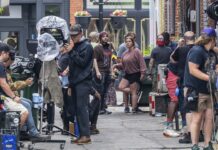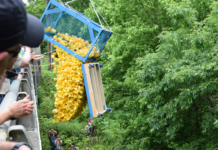
I had a wonderful father! His name was Alfred Neal Justus, but he went by “Neal.” A search on the Internet gave the meaning of Neal as “cloud,” “passionate,’ or “champion.” Most students of history have heard of “King Alfred.” Most names in our Justice/Justus lines have Scotch/Irish beginnings. Once in questioning my grandmother, Lela Dickerson Justus, she spoke of our background in England and patted me on my rear, saying “… and perhaps a little French!”
Father’s Day was first held on July 5, 1908, in Fairmont, West Virginia, in the Williams Memorial Methodist Episcopal Church South, now known as Central United Methodist Church. Grace Golden Clayton, while mourning her father’s passing in the mining disaster in nearby Monongah that killed 361 men, 250 who were fathers, leaving about 1,000 fatherless children, asked her pastor Robert Thomas Webb to honor all those fathers. This event was overshadowed by a hot air balloon event and the death of a 16-year-old girl on July 4, 1908 and was not celebrated again for many years.
A bill to receive national recognition of the holiday was introduced in Congress in 1913. President Woodrow Wilson speaking in a Father’s Day celebration wanted to make it an official holiday but Congress resisted. Two earlier attempts had been defeated by Congress. In 1957 Maine Senator Margaret Chase Smith wrote accusing Congress of ignoring fathers for 40 years while honoring mothers, singling out only one of two parents. In 1966, President Lyndon B. Johnson issued the first presidential proclamation honoring fathers, designating the third Sunday in June as Father’s Day. Six years later, the day was made a permanent national holiday when President Richard Nixon signed it into law in 1972.
My dad – Neal Justus – was a farmer, but also drove a school bus for many years, using his own vehicles for the first few years. He also held a job in the Farmer’s Mart in Clayton through many years. He told me after I grew up that he kept the bus job because of the medical benefits when he retired. Thus by his working at multiple jobs he kept his family in shelter and food, sent five children through school, and in his spare time grew corn and vegetables, milked cows, raised hogs, and occasionally took us boys camping, hunting and fishing. Through the years he also led us to church and taught us to be honest and patriotic.
The foundation of a people and nation is the family. Our parents and most of the other families in our rural community as I grew up attended church regularly and worked closely with teachers and schools. Parents worked more closely with teachers then as they knew the value of a thorough education along with strong moral teaching for young people as they entered the teens and then the adult age.







